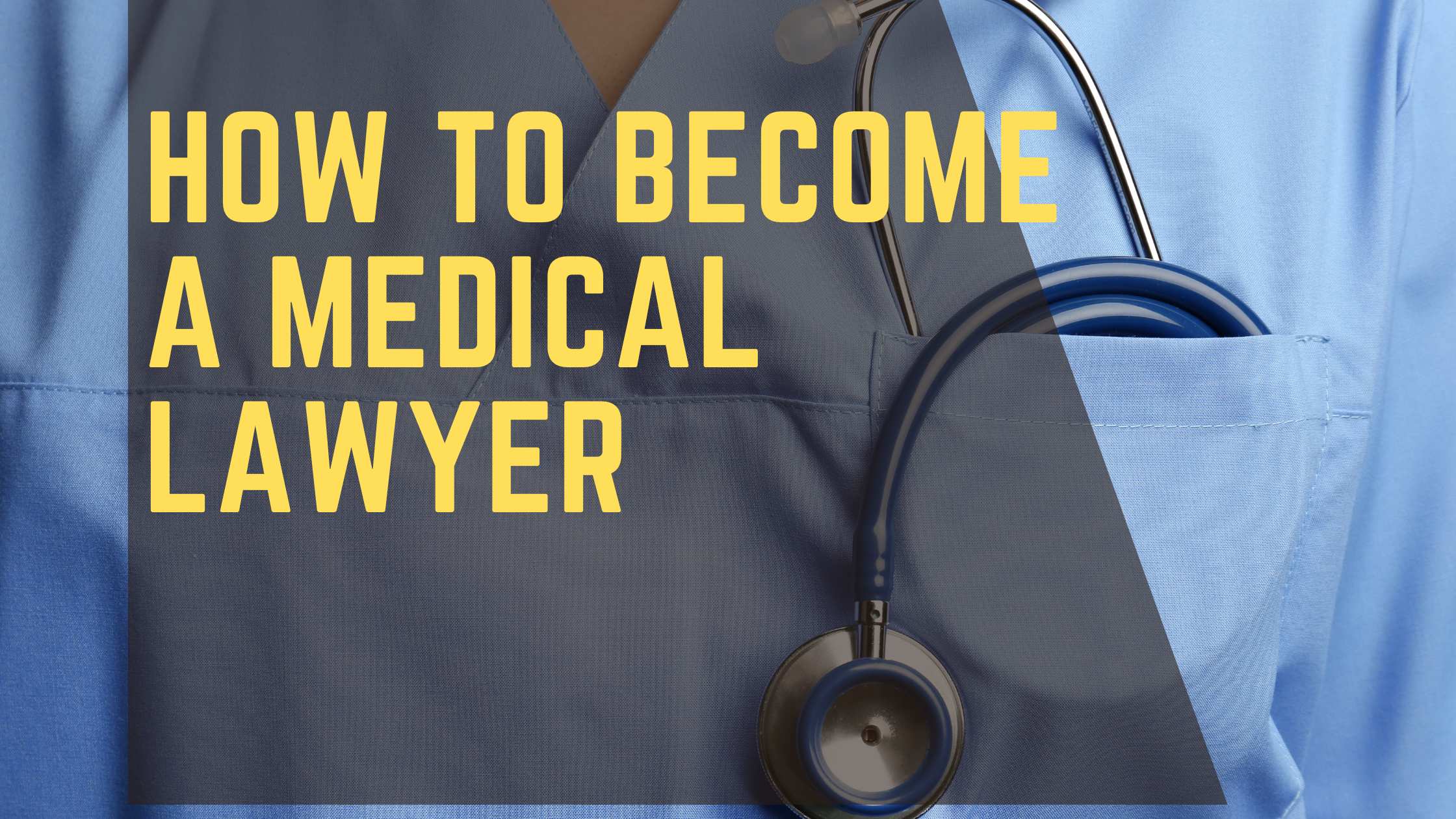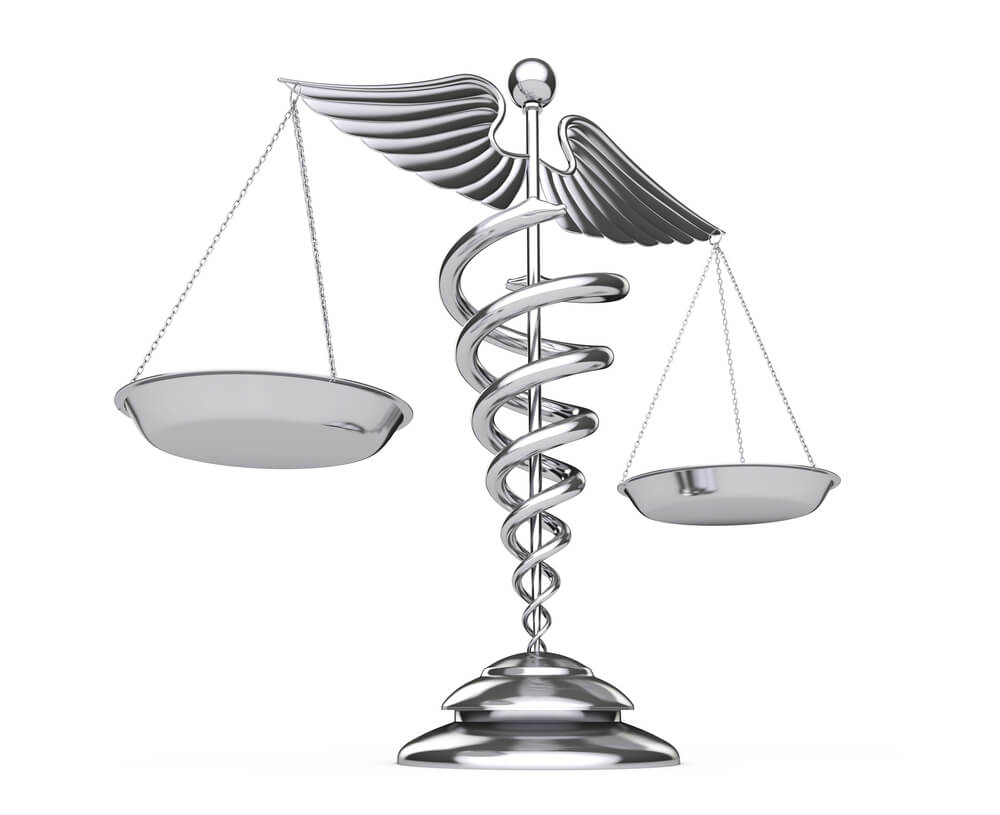How to Become a Medical Lawyer?

To become a medical lawyer, complete a law degree and pass your state’s bar examination. Specialize in medical law through additional coursework, certifications, or experience in the healthcare field.
Embarking on a career as a medical lawyer requires a dedicated pursuit of legal education with a specialized focus on issues at the intersection of law and medicine. Start with a strong foundation by earning an undergraduate degree, ideally with coursework in health or science-related fields to give yourself an early advantage.
How to Become a Medical Lawyer? After obtaining your Juris Doctor (JD) from an accredited law school, you’ll need to clear the bar exam in the state where you intend to practice. A demonstrated interest in medical issues can be cultivated through internships in healthcare-oriented law firms or clinics, securing a significant edge in this competitive niche. Tailoring your legal expertise to the complexities of medical law opens the door to a dynamic profession where health care and legal issues converge, constantly evolving with technological advancements and regulatory changes.
The Path To Becoming A Medical Lawyer
The Path to Becoming a Medical Lawyer encompasses a mixture of rigorous education, passing critical exams, and gaining legal experience in healthcare matters. This specialized journey equips candidates with the skills required to navigate the complexities of medical law.
Essential Education And Degrees
A solid educational foundation is paramount for an aspiring medical lawyer. Below outlines the typical academic steps:
- Bachelor’s Degree: Earn a four-year undergraduate degree in a relevant field such as pre-law, biology, or healthcare administration.
- Law School: Secure a Juris Doctor (JD) from an accredited law school. Specializing in health law during this period can be beneficial.
- Optional Master of Laws (LLM): For further specialization, consider an LLM in Health Law to deepen your knowledge.
Passing The Bar: A Crucial Step
After law school, the next hurdle is passing the bar exam — a rigorous test that varies by state. Success on the bar exam grants the license to practice law.
- Review Bar Requirements: Each state’s bar requirements differ, so know what is expected in your jurisdiction.
- Bar Exam Prep Courses: Enroll in prep courses to increase your chances of passing. Dedication is key.
- Bar Exam: Sit for the multi-day exam that covers various aspects of law including ethics, general law, and specialized legal knowledge in medical law.
Once you pass the bar exam, you’re officially ready to start your career in the challenging yet rewarding field of medical law.

Credit: www.lawcrossing.com
Medical Law Specialization
Embarking on a career in medical law blends the complexities of the legal system with the intricacies of healthcare. It requires a deep understanding of both fields. Professionals in this arena tackle critical issues such as malpractice, healthcare ethics, and patient rights. Specialization in medical law sets practitioners apart, equipping them with specialized knowledge necessary to navigate this niche field effectively.
Choosing The Right Law School Courses
Selecting courses that align with medical law is pivotal. Aim for a curriculum that covers:
- Healthcare regulations
- Medical ethics
- Personal injury and tort law
- Patient rights and data protection
- Biotechnology laws
These courses provide a solid foundation for aspiring medical lawyers. They sharpen legal acumen and tailor expertise to the healthcare sector.
Advantages Of Medical Law Certifications
Certifications in medical law boost your qualifications. These credentials:
| Advantages |
|---|
| Validate professional capabilities |
| Increase marketability to employers |
| Ensure up-to-date industry knowledge |
| Offer networking opportunities with other experts |
Earn certifications from recognized legal or medical bodies. They signify a commitment to ongoing learning and a serious approach towards this specialized field.
Gaining Relevant Experience
Stepping into a career in medical law demands hands-on experience. You need to understand real-world legal challenges. Experience lets you apply classroom knowledge to life cases. Gaining this experience is a critical step towards becoming a medical lawyer.
Internship Opportunities In Medical Law
Internships are golden for aspiring medical lawyers. They offer insight into the medical-legal field. Law students should seek internships at firms specializing in healthcare law. Here’s how internships help:
- Learning from experienced attorneys guides your early career steps.
- Work on actual cases to gain legal problem-solving skills.
- Networking with professionals might open future job doors.
Finding internships can be simple:
- Attend job fairs at law schools.
- Use legal job search websites.
- Contact law firms directly.
Clerkship Roles And Their Impact
Clerkships are stepping stones in medical law. They offer different experiences from internships. See the impact of clerkship roles below:
| Role | Impact |
|---|---|
| Judicial Clerkships | Understanding court decisions aids in grasping medical law complexities. |
| Administrative Clerkships | Working with healthcare regulations sharpens your attention to legal details. |
Clerkships often result in:
- Strong legal research skills from vast exposure to cases.
- Improved writing abilities for drafting legal documents.
- A mentor relationship with a judge or senior lawyer.

Credit: www.juriseducation.com
Developing A Professional Network
Developing a Professional Network is crucial for anyone aiming to become a successful medical lawyer. It opens doors to new opportunities, knowledge, and mentorship. A robust network can catapult your career, setting the foundation for a future client base and collaborations. Dive into leveraging legal associations and attending industry conferences to enhance your network.
Leveraging Legal Associations
Legal associations are gold mines for budding medical lawyers. They serve as platforms to meet experienced professionals and thought leaders. Membership often comes with exclusive resources, professional development tools, and networking events. Focus on joining these key associations:
- American Bar Association (ABA) – Offers resources tailored for health law.
- American Health Lawyers Association (AHLA) – Provides sector-specific updates and networks.
- Local Bar Associations – Facilitates connections within your community.
Engage actively within these organizations. Volunteer for committees or write articles for their publications. This showcases your dedication and expertise, making a lasting impression on peers.
Attending Industry Conferences And Seminars
Conferences and seminars are pivotal for networking in real-time. They bring together experts and aspiring professionals under one roof. Prioritize these gatherings:
- Annual health law conferences
- Continuing Legal Education (CLE) seminars
- Medical-legal workshops
Prepare business cards and a short, impactful introduction about your ambitions and expertise. Follow up with contacts after events to nurture relationships. Stay updated with event listings through associations, educational institutions, and industry publications.
Building A Career In Medical Law
Medical law is a challenging and rewarding field, blending healthcare dynamics with legal expertise. Aspiring medical lawyers must understand the nuances of both the medical industry and the judicial system. Establishing a successful career necessitates strategic choices and ongoing professional development.
Selecting the right platform is crucial for your career trajectory in medical law. Each sector has unique advantages and requirements.
| Private Practice | Public Sector |
|---|---|
| Autonomy in choosing cases | Focus on public policy |
| Potentially higher income | Regular hours, job security |
| Client-focused services | Community impact |
Boldly weigh these factors before deciding. Your choice will shape your career path significantly.
Continual learning is non-negotiable in the ever-evolving field of medical law. Crucial legal precedents, policies, and medical advancements must be monitored closely.
- Attend seminars and workshops
- Subscribe to legal and medical journals
- Participate in professional forums
- Maintain CLE (Continuing Legal Education) credits
Staying informed not only enhances your credentials but also ensures you provide the best representation for your clients. This commitment positions you as a thought leader in the field of medical law.
Key Skills For Success
Becoming a medical lawyer demands a unique blend of legal acumen and healthcare knowledge. Certain skills pave the way for success in this intricate field. These skills ensure that lawyers can navigate complex cases with proficiency. Mastery in these areas separates the exceptional from the average.
Analytical Skills And Attention To Detail
Effective medical lawyers think critically and analyze vast amounts of information. They develop strategies that pivot on fine points of law and fact. This demands deep analytical skills.
Attention to detail plays a critical role. A missed piece of evidence can change a case outcome. Lawyers must scrutinize every document with utmost precision.
Understanding Of Medical Terminology And Procedures
A robust understanding of medical terminology and procedures is non-negotiable for medical lawyers. Familiarity with medical concepts allows lawyers to examine evidence and expert testimony.
This knowledge also aids in the interpretation of medical records. It helps in building a compelling argument. Clients depend on their lawyer’s understanding of complex healthcare issues.
| Skill | Why It’s Important |
|---|---|
| Analytical Thinking | Develops logical, winning case strategies. |
| Attention to Detail | Ensures no crucial details are overlooked. |
| Medical Know-how | Facilitates case preparation and courtroom proceedings. |
Developing these skills requires dedication and often, specialized training. Regular interaction with healthcare professionals also enhances understanding. Through consistent practice and engagement, medical lawyers refine these essential skills.
Conclusion
Embarking on the path to becoming a medical lawyer is challenging but deeply rewarding. With determination and focused education, any aspiring attorney can excel in this niche. Take the plunge, commit to the hard work, and your career in medical law could significantly impact countless lives and the healthcare industry.
Introducing Jonah Plum, a legal luminary whose journey through the corridors of justice has been intertwined with the eloquence of the written word. Born and raised in the vibrant city of Seattle, Washington, Jonah's early fascination with language and debate laid the foundation for a remarkable career in law.
Jonah's scholarly odyssey began at Harvard Law School, where they immersed themselves in the study of jurisprudence, honing their analytical prowess and legal acumen. Armed with a law degree, they entered the legal arena, navigating courtrooms and boardrooms with a fervor for justice. Yet, it was the realization of the transformative power of the written word that led Jonah to pivot from legal briefs to the world of blogging.
A digital advocate in the truest sense, Jonah recognized the need for demystifying legal concepts and making them accessible to a broader audience. This blog, a virtual repository of legal insights, transcends geographical boundaries, connecting with a global readership hungry for clarity amidst legal complexities.
Beyond the black letter of the law, Jonah delves into the human stories that underscore the legal landscape. Their writing goes beyond legal analysis, weaving narratives that humanize the law, shedding light on its impact on individuals and society.






